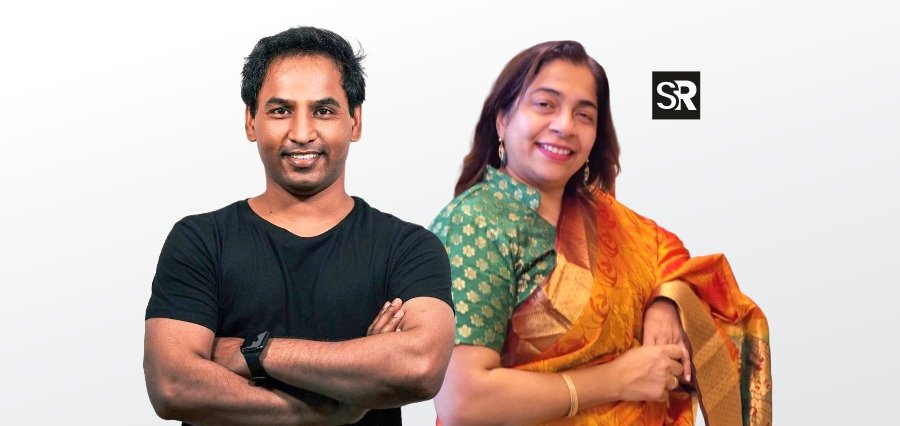Deams defy and destroy darkness. Full of hope’s sunshine, and flowing with the fountain of desires to better tomorrow than the times today are, dreamy eyes dare to imagine impossible happening even before the beholder knows about it consciously. It is through dreams, imaginations, and hopes of living a better life that we humans have made possible the kind of magical progress that we have achieved for ourselves today.
Along with those dream-pursuing individuals, the visionary organizations like Litvill Lessons Association―established by the dream-pursuing leader Dr. Imran Rautan―have taken upon themselves the mantle of preparing the current generation to keep humanity’s drive of advancing times with that ever-progressive zeal of humankind accelerated.
Led by the Founder and Managing Director, Dr. Imran Rautan, Litvill Lessons Association is redefining the entire educational system by combining it with practical English language lessons to nurture today’s budding minds in a globalized ecosystem, so that they can withstand the known and unknown challenges of the future.
Indian Slum to Social Entrepreneurship
The story of Litvill Lessons Association (Litvill Lessons) begins with an unlikely meeting — an Indian slum boy and a European lady. The boy once dreamed of learning English only to buy sunglasses, cars, and look rich. The lady, frustrated with the limitations of the entire education system, wanted to create something completely new — something that would actually prepare children for the world they are inheriting.
That slum boy, now Dr. Imran Rautan (MBA, PhD), grew up to become the founder and managing director of Litvill Lessons, and the European lady became his mentor, and the chief architect of Litvill Lessons’ learning management system, Dolores Csabai, whom he now calls his ‘Karma Engineer.’ Together, they turned that early dream into a fully-fledged organization, Litvill Lessons — one of the youngest and most forward-thinking non-profit organizations in India.
The organization is committed to preparing Indian youth on how to live well, live sustainably, and lead others toward a better future through the concept of ecovillages. Its approach is simple yet radical — combine English language education with practical sustainability training so that children can both solve their local challenges and speak up on the global stage.
Bridging the Divide
Litvill Lessons addresses critical gaps in current educational approaches:
- Practical Environmental Readiness: Students and young adults are not fully equipped to handle real world crises such as water scarcity, pollution, and food insecurity in a hands-on, actionable way.
- Communication Skills: Many learners cannot communicate confidently in English, leaving them locked out of knowledge and global opportunities.
- Peer-to-Peer Learning: Current systems rarely encourage students to learn from or teach one another, missing an opportunity to build leadership and collaboration skills.
- Self-Directed Learning: Most learners are not trained to design their own learning path or take ownership of their education — a key skill for thriving in an uncertain future.
- University Engagement: Higher education remains disconnected from grassroots change. Litvill Lessons bridges this gap by involving university students as mentors and change agents, creating a pipeline of leadership for sustainable development.
“To address today’s challenges, we need to prepare our children and youth to challenge the existing way of living and find innovative ways to live a more prosperous and sustainable life,” says Dr. Imran Rautan. “By teaching them how to live sustainably and communicate effectively, they can unlock global knowledge, inspire their peers, and become role models for others.”
Imbibing the ‘Fundamentals of Life’ into the Budding Minds
Led by Litvill Lessons Association in collaboration with Chitkara University, Punjab, and Harmony House, the ‘Fundamentals of Life’ was Litvill Lessons’ first flagship initiative, designed to help young learners explore the basic systems that keep life going and understand how those systems are under threat. This 12-week program guided 29 students through three key themes — Water, Food, Air & Fire — combining 25 hours of self-learning, 18 hours of guided learning, 12 mentor-led webinars, and peer tutoring sessions, with an English language course.
It is a collaborative effort by Litvill Lessons, Chitkara University, Punjab, and Harmony House India, with special thanks to Ms. Hazel Siromoni, Pro Vice Chancellor (International), Chitkara University. What made this initiative special were the students themselves. They didn’t just complete tasks — they explored, reflected, and cared. They leaned into difficult questions with curiosity and creativity, showing what’s possible when young minds are given the space to engage with real-world issues in meaningful ways.
The project was highly hands-on and solution-focused.
Students:
- Presented local solutions for issues like water scarcity, waste, and hunger.
- Designed conceptual models, such as community food banks, to address food insecurity.
- Interviewed local people about air pollution, asking what they understood about its causes and effects, then used those insights to design practical solutions to reduce pollution in their community.
- Learned how to analyze and present findings, building confidence in sharing their ideas publicly.
- Expressed their learning creatively, turning facts into drawings, stories, and reflective writing that made their understanding deeply personal.
The impact was transformative:
- Students became more aware and outspoken about sustainability challenges and began advocating for solutions at home and in their community.
- They practiced English as a language of action, not just a subject — presenting solutions, leading discussions, and asking critical questions.
- Peer-to-peer learning created collaboration and accountability, turning students into mentors for one another.
- The top six students’ work was published in Fundamentals of Life: Water – Through the Eyes of Young Changemakers, giving them a platform to inspire others.
“This project was never just about lessons — it was about giving students the tools to investigate real problems and create real solutions,” says Dr. Imran Rautan. “When they interviewed local people, designed solutions, and shared them in English, they weren’t just learning — they were leading, as the core aim of Litvill Lessons.”
The United Lessons
Dr. Imran Rautan then shared more about Chitkara University, Punjab, and Harmony House, and their role in the Fundamentals of Life project. Chitkara University, Punjab, is a leading private university in India, accredited with an NAAC A+ grade. Known for its strong industry linkages, global collaborations, and focus on applied research, the university has positioned itself as a hub for innovation and sustainability.
Its Centre of Excellence for Sustainability (CES) serves as the focal point for research, education, and community engagement aligned with the UN Sustainable Development Goals (SDGs), making it a perfect partner for a project like Fundamentals of Life.
Under the leadership of Sqn Ldr (Dr) Rina Angel (V), Chairperson of CES, Chitkara University, provided mentorship, guidance, and structure throughout the program.
Faculty mentors, including Professor Ankur Choudhary, Professor Ravi Dandotiya, and Dr Kanika Rai, guided students through the three core modules — Water, Food, and Air & Fire — helping them think critically, conduct surveys, and present their findings. Their involvement ensured that students learned not just what the problems were, but how to analyze them and propose local solutions.
Sqn Ldr (Dr.) Rina Angel (V)
Vice President, Office of Infrastructure Enhancement; Chairperson, Centre of Excellence for Sustainability (CES) Sqn Ldr (Dr.) Rina Angel (V) Dr. Rina provided overall leadership for the collaboration. She joined coordination meetings, advised on program design, and ensured that the project aligned with Chitkara’s sustainability vision.
Her involvement gave the program both structure and inspiration, motivating students to approach the sessions with curiosity and dedication. She also gave a very insightful guest talk to the learners about what students can do in their day-to-day lives to live more sustainably.
Aarti J Sharma
Dean, Professional Development Centre
Ms. Aarti led the student selection process, ensuring that each participant could follow and benefit from the program. She oversaw English placement assessments and guided students who needed extra language support into the preparatory English course designed by Litvill Lessons.
Prof. Ankur Choudhary
Assistant Professor & Member-Secretary, CES
Professor Choudhary mentored students during the Water module, helping them understand water scarcity and pollution challenges. His guidance inspired students to think deeply about water conservation and propose practical solutions.
Dr. Kanika Rai
Professor-cum-Vice Principal, Department of Nursing, Chitkara School of Health Sciences
Dr. Kanika guided the Air & Fire module, teaching students to understand air quality, fire management, and their roles as changemakers. Her mentorship helped transform knowledge into actionable habits, such as waste reduction, tree planting, and energy conservation.
Prof. Ravi Dandotiya (PhD)
Associate Professor & Deputy Dean, Chitkara College of Hospitality Management
Professor Dandotiya led the Food module. Under his mentorship, students explored food insecurity and hunger and designed conceptual food bank models — linking classroom learning to real-world solutions.
Mohit Kumar
Sustainability Manager, Chitkara University
Mr. Mohit served as the main coordinator for the project, managing communication between Chitkara University, Harmony House, and Litvill Lessons. His timely updates and problem-solving ensured smooth execution and kept everyone aligned.
This leadership and mentorship team transformed the project from an idea into a living collaboration — combining academic expertise, practical guidance, and consistent support to deliver a program that inspired and empowered every learner.
Celebrating Young Changemakers
We celebrated the achievements of our young learners from Harmony House India, who successfully completed the Fundamentals of Life project.
Through hands-on activities and storytelling, these curious and creative students explored one of life’s most essential elements: water. Their reflections and assignments were later compiled into the project book Fundamentals of Life – WATER (DOI: 10.13140/RG.2.2.15641.07525).
Each student received a certificate of achievement and a copy of the book featuring their own work — a lasting reminder of their imagination, curiosity, and dedication to creating a more sustainable future. Harmony House India is a non-profit organization dedicated to transforming the lives of underprivileged children and communities in India, serving over 1,000 children daily with education, nutrition, healthcare, and emotional wellbeing programs. For this project, Harmony House played a vital enabling role — providing internet access, laptops, and tablets, coordinating attendance, and ensuring smooth participation.
One of the unique strengths of Litvill Lessons is its global network — full professors, CSR managers, industry leaders, and sustainability experts who come together to support learners. For the Fundamentals of Life project, we invited distinguished guest speakers from around the world, giving students exposure to real-world insights and international perspectives.
Anita Sharma
IT Department and Project Coordinator
Motivated students, supported their assignments and self-learning, and made sure every learner stayed on track. Her daily involvement gave students the confidence to engage fully — attending webinars, submitting work on time, and presenting solutions with pride.
Meenakshi Khanna
Director of Education, Harmony House
Litvill Lessons worked closely with these mentors and coordinators to bring the program to life. Under the supervision of Dolores Csabai, who designed the entire learning system, the team developed a comprehensive structure that included the program flow, self-learning modules, peer collaboration framework, and mentor interaction model. They also provided the learning management platform, which allowed for tracking student progress, managing assignments, and ensuring smooth communication among all participants.
This collaboration created a unified and engaging experience where every learner could participate fully, stay motivated, and grow at their own pace — exactly as the program was envisioned.
Sally Bogale
Co-CEO, Gaia Education
Shared how the younger generation has the power to redesign systems — from education to the economy — and reassured students that the future is not doomed, but open for them to shape.
Prof. Jenny Pickerill
Professor of Environmental Geography, University of Sheffield, the United Kingdom
Discussed the critical role the next generation plays in building new systems amid global crises and shared her books, Ecocommunities: Surviving Well Together and Living in an Eco-community, with the students.
Ashok B
Deputy Manager, Sustainability & Risk Governance, Rain Industries
Talked about sustainability trends and how students can be part of building a more prosperous and sustainable future.
Parasuram K
CSR Manager, Maruti Suzuki India Limited
Spoke about building resilient communities and implementing simple, powerful solutions for sustainability.
Prof. Sabine Sedlacek
Head of the School of Sustainability, Governance, and Methods, Modul University, Vienna, Austria
Her talk focused on sustainability strategies and inspired students to see how their individual actions can contribute to larger environmental change.
These sessions helped students see themselves as global changemakers, connecting their local projects to worldwide movements for sustainability. They also allowed learners to interact with professionals beyond their immediate environment, thereby strengthening their English communication skills and confidence.
“When students hear directly from international leaders and practitioners, they understand that their voices matter — that they are part of something much bigger than a classroom project,” says Dr. Imran Rautan.
The six most engaged students had their work published in Fundamentals of Life: Water – Through the Eyes of Young Change-Makers, giving them a platform to inspire others.
“Some of the students even said they no longer want highly paid jobs if it means harming the planet — they now want meaningful work that uses resources wisely so others’ futures can be bright,” recalls Dr. Kanika Rai, mentor for the Air & Fire module.
This is exactly what Litvill Lessons means by building a sustainable mindset — giving young people the tools to think critically, act responsibly, and inspire their communities.
Dr. Imran Rautan says, “Over 12 weeks, we watched them grow from hesitant learners into confident problem-solvers and changemakers.” Based on their assignments and constructive feedback from mentors:
- Awareness to Action: Students began noticing how much water was wasted at home, convinced their families to reduce usage, and even started discussions about tree planting and waste reduction.
- Research Skills: They learned to conduct surveys, interview local people about air pollution, and turn raw responses into practical, community-level solutions.
- Creative Expression: They didn’t just write reports—they told stories, drew pictures, and turned their learning into art, making sustainability personal and memorable.
- Confidence in Communication: Many students spoke up in English for the first time in a public setting, presented their ideas during webinars, and asked questions fearlessly in the guest talks.
- Peer Leadership: By working in study pairs, they learned to tutor each other, creating a supportive learning culture that kept everyone moving forward.
Dr. Imran Rautan adds that during the program, one of the biggest challenges they faced was consistent access to devices and internet connectivity for students. Many of them depended on shared computers or tablets in their learning labs, and during heavy rains or unforeseen circumstances, they could not reach the labs. As a result, a few sessions were missed — not because of a lack of interest, but because of infrastructure gaps.
“This taught us two things:”
- Motivation isn’t enough without access. Even the most eager students need reliable tools to stay engaged.
- “Our future programs must build stronger backup plans. We are now working on solutions to improve access, such as flexible session schedules, offline learning materials, and better progress-tracking systems to keep students motivated even if they miss a live session.”
“We realized that our job isn’t just to deliver lessons — it’s to make sure every learner can stay connected, no matter what,” adds Dr. Imran Rautan. “This honest reflection is helping us design even more resilient programs going forward, so that technology and infrastructure never become barriers to learning.”
“Let us introduce our best learners!”
Ajmeri Khatun– The Human Fact Machine:
After the course, she decided water is sacred and became a fierce advocate for saving every drop.
Lucky Khan – The Overthinking
Water Warrior: After the course, he decided to turn his overthinking into action — checking every tap, saving water, and reminding everyone that dirty water means big trouble.
Meenakshi Singh– The Explorer of Everything: After the course, she decided water must never be wasted — and even stopped her brother mid-shower to prove her point.
Nitu Singh– The Explorer with a Water Radar: After the course, she decided to become a water detective — counting drops and giving the look to anyone who leaves a tap running.
Rajesh Singh – The Conversation Converter: After the course, he decided to turn his jokes into action, talking about clean water as a serious issue and inspiring others to care.
Sohel Khan– The Quiet Realist: After the course, he decided to keep it simple: “Don’t waste water. It will end.”
These six students show what happens when young people are trusted with real problems. They turned facts into action— saving water at home, questioning community habits, and inspiring others to care — proving that change begins with small, determined steps. This way, it’s not just what they did but why it matters — it connects their engagement to the bigger mission of Litvill Lessons.
Dolores Csabai
Chief Architect, Litvill Lessons Learning Management System
As Curriculum Architect, Dolores designed the entire learning framework and content for Litvill Lessons, including the Fundamentals of Life program. She created the course structure, learning flow, and methods that made each module engaging and practical. By combining sustainability, critical thinking, and English language learning, she built a model that is simple, flexible, and designed for real-world impact.
Dolores also serves as a mentor to the founder, Dr. Imran Rautan, whose own transformation from a stone polisher in the slums to a PhD scholar and leader of this movement is a living example of the education she envisions. Every module, assignment, and activity reflects her belief that education should prepare young people to face real challenges and imagine better futures.
Dr. Stephen Thomas Homer
Director, Yunus Social Business Centre & Associate Professor, Sunway Business School
Dr. Stephen Thomas Homer, the former PhD supervisor of Dr. Imran Rautan, now serves as an organizational mentor for Litvill Lessons. He provides strategic guidance to help channel the youthful energy of the team toward its ambitious mission of empowering the next generation.
With his strong academic background, Dr. Stephen also supports Litvill Lessons in designing and implementing robust student outcome assessments — measuring growth, impact, and learning progress both before and after each program. His ongoing mentorship ensures that Litvill Lessons’ work remains research-informed and focused on creating measurable change.
Litvill Lessons Social Entrepreneurship Hub Initiative
Social Entrepreneurship Hub Initiative―The Next Chapter Building on the success of Fundamentals of Life, Litvill Lessons is preparing to launch Social Entrepreneurship Labs at universities across India. These labs will be vibrant platforms where university students can learn, practice, and grow as changemakers — gaining real-world skills in leadership, marketing, fundraising, and public speaking while working on projects that benefit their communities.
The goal is ambitious: 100 labs across India, reaching 2,000 students. Each lab will be a space where students from all backgrounds can strengthen their knowledge, develop confidence, and prepare not only for successful careers but for their roles as future leaders shaping a sustainable and prosperous world.
These labs will also connect Indian students with Litvill Lessons’ international network of ecovillage researchers, university students, and NGOs across Europe — turning education into action and local projects into global collaborations.
By highlighting the Fundamentals of Life project, we hope to showcase not just an innovative educational model but also the passion and determination of a leader – Dr. Imran Rautan, who is preparing the next generation to face real challenges and create better futures.






